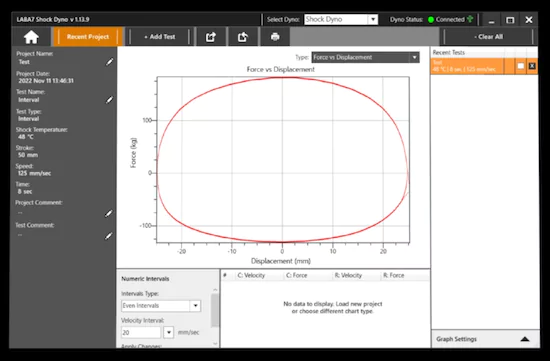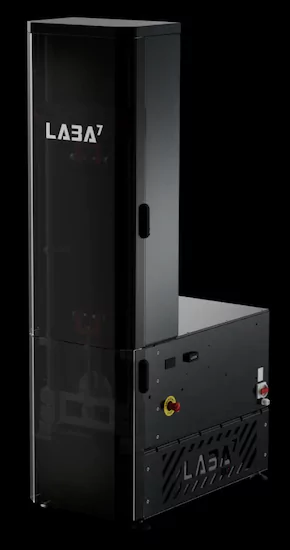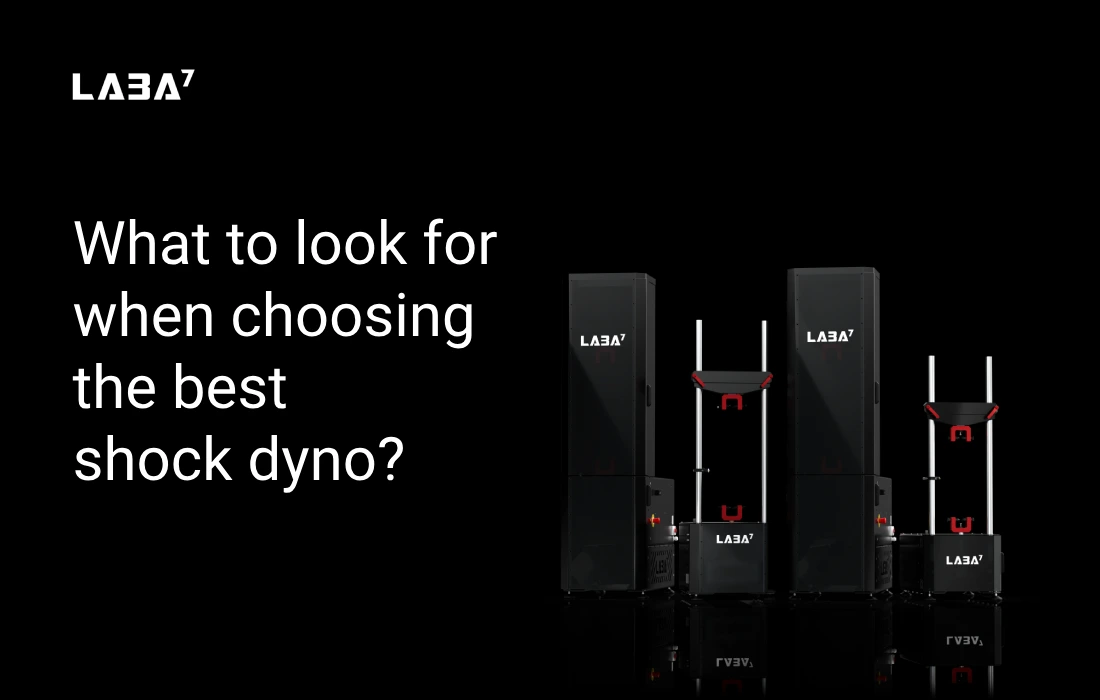As with any other technology, the market for shock dyno for sale is constantly expanding and evolving, making it increasingly challenging to select the most suitable option for your workshop. Additionally, some relatively new dynamometers might not live up to the expectations of being advanced.
Selecting a reliable device requires you to evaluate your needs and finances in the first place. Then, you must pay attention to a series of aspects, such as components, performance, and ease of use, among others.
With that in mind, we have compiled a list of criteria for finding the best shock dyno for sale. You will also find a recommendation for a damper dyno in the article below.
Table of contents:
How to choose the best shock dyno?
The shock dynamometer is a specialized technology that is used to evaluate and optimize the performance of different shocks. For it to be truly beneficial, the dyno needs to provide accurate and consistent results.
Below, you will find the key features to consider when looking for the best shock dyno to buy:
Compatibility
One of the most important factors to consider when looking for a damper dyno for sale is that it would be compatible with the types of shock absorbers you work with. The technical shock absorber dynamometer specifications that can help you determine whether it’s suitable for you are:
- The maximum speed
- The maximum force
- Stroke adjustability
- The type of linear motion creation mechanism
- Power supply requirements
- The type of integrated temperature sensors
- The maximum free mounting length
What’s also important is that the damper dyno supported a variety of adapters that would allow you to service dampers of different types of vehicles. This includes shock dyno adapters for cars, motorcycles, and bicycles.
Type of the mechanism
There are four different types of shock dynamometers, including Scotch-Yoke, Crank-Based, Electromagnetic Actuator, and Hydraulic dynos, differentiating in terms of reliability, adaptability, ease of use, and price.
The Scotch-Yoke model is perhaps the most popular type of damper dynamometer on the market, and can also be found in LABA7 shock dynamometers. It uses a Scotch-Yoke mechanism to replicate the forces encountered by a suspension system and is a strongly versatile, consistent, user-friendly, and affordable option.
In the meantime, the Electromagnetic damper dyno allows you to replicate the forces suspension systems experience on even the most desired tracks, such as Spa or Nurburgring. Moreover, it offers precise force control, is energy-sufficient, and requires lower maintenance.
Data accuracy
When speaking of autosports, a tiny fraction of changes in the suspension system may lead to either drastically better or worse results. Meaning, the accuracy of suspension dyno data can determine your success on the track.
Therefore, when you are searching for a shock dyno for sale, it is important to pay attention to the data logger’s maximum sampling rate per second. Additionally, it is crucial to ensure that the dynamometer can provide data with minimal electrical noise to ensure accurate results that closely resemble the original signal.
Intuitive software
The majority of reputable shock dynos work in conjunction with software, which helps you analyze gathered examination data. But it’s no secret that some of the shock dyno apps don’t offer intuitive user interfaces, making it complicated to properly benefit from the extracted information and to read the damper dyno graphs.
As you may have already figured, user-friendly and functioning software for shock dynamometers should be as reliable as the dynamometer itself. Factors that identify a top-notch program dynamometer software, could be these features:
- Work with both Force vs. Velocity and Force vs. Displacement tests
- Automatic stroke calibration after stroke change
- Interactive graphs
- Advanced-level optimizations
- Custom reports generation

Not less important is for the software to be built and further developed inside the company, as we do with the LABA7 shock absorber dyno application, as it ensures the team of developers and engineers can work along in the most effective manner finding ways to improve.
Customer support
When you’re purchasing a mechanical technology as significant as a suspension dyno, there may be certain questions that even experienced users have, and they may need answers from the product developers. That’s why it’s crucial to invest in a shock tester that comes with effective customer support to ensure that you can get the help you need when you need it.
It’s best if the seller offers several different ways to reach out to them, including email tickets, live chats, phone calls, and the help center (also known as the FAQ section.)
Price-to-quality ratio
Damper dynamometers come in different price ranges, depending on the features they offer and what shocks they can service. However, some dynamometers can be noticeably pricier than others without giving you enough in return.
Therefore, we recommend you responsibly compare each potential provider in your sight, read the reviews about them, and only then evaluate the price they ask you to pay for a suspension dyno.
Which shock dyno should I get?
Ultimately, the best damper dyno for you will be one that aligns with your testing goals, budget, and experience. Nevertheless, the series of LABA7 shock dynamometers can benefit different needs.
Here, you can find a dynamometer for nearly any type of vehicle, including bicycles motorcycles, race cars, passenger cars, trucks, and more. There are four different versions available, each one tailored to suit different suspension systems. However, the Heavy Shock Dyno is the most versatile option as it can handle both small and large shocks.

The prices of LABA7 damper dynos vary from €7950 to €19000, with a chance of increasing if specialized damper dyno adapters are needed on the side.
But no matter what price you’re paying or what type of vehicles you work with, we ensure that each dynamometer provides you with the same state-of-the-art quality. Each of them uses the Scotch-Yoke mechanism, has a reduced electrical noise system, and can read tens of thousands of samples per second, ensuring you receive the most precise data.
If you liked this article, you might like these as well:

